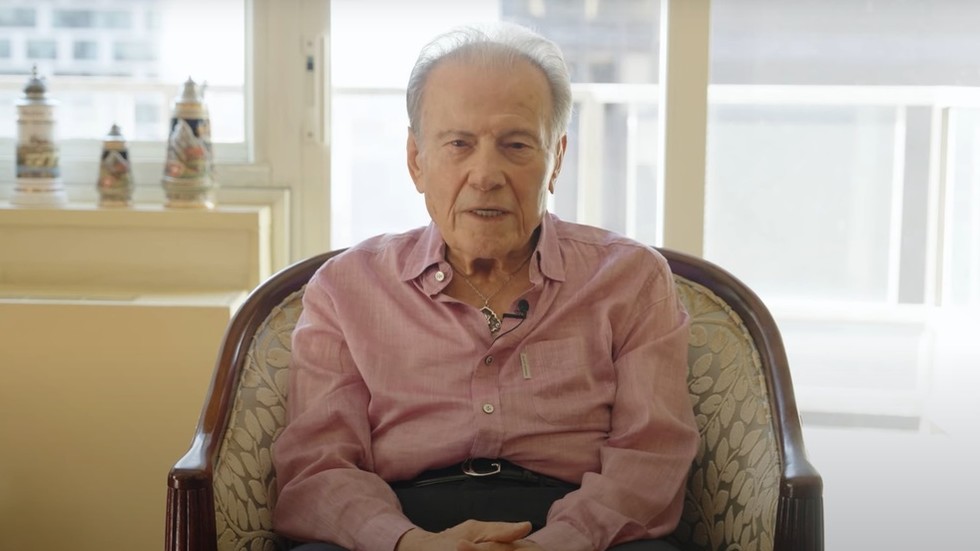In a contentious political climate leading up to the presidential elections, Democratic nominee Kamala Harris faced sharp criticism for her remarks comparing Republican rival Donald Trump to Adolf Hitler. This backlash was epitomized by comments from Jerry Wartski, a 94-year-old Holocaust survivor who has dedicated significant portions of his life to sharing his experiences and advocating for Holocaust education. Wartski, who spent years imprisoned at Auschwitz-Birkenau during World War II, expressed his outrage in a videotaped message released by Trump’s campaign. Highlighting the personal impact of Hitler’s regime, Wartski fervently asserted that Harris’s comparison of Trump to the Nazi dictator was one of the most egregious statements he had encountered in his years living in the United States.
Wartski’s response was not only a personal reflection on his traumatic past but also an appeal for respect towards the memory of Holocaust victims. He made it clear that he believed Harris should issue a formal apology to all victims of the Third Reich for her remarks. His perspective was rooted in his own lived experience — having lost his parents and other family members at the hands of the Nazi regime. By asserting that he possessed a deeper understanding of Hitler’s atrocities than Harris could ever have, Wartski dismissed her charged rhetoric as both inappropriate and unsubstantiated. His call for an apology underscored a broader concern about the gravitas and implications of equating contemporary political figures with historical atrocities.
The controversy arose after Harris’s comments on John Kelly, Trump’s former chief of staff, who allegedly claimed Trump had made favorable remarks about Hitler during his presidency. Harris characterized these remarks as chilling and indicative of Trump’s character, intensifying her critique by labeling him a fascist and a potential dictator. For Harris, this commentary was a significant warning about the perils posed by Trump’s presidency. The subsequent negative fallout from Harris’s statements included not only Wartski’s critique but also a broader discourse about the appropriateness of making such comparisons in the charged atmosphere of a presidential campaign.
Trump quickly responded to Harris’s allegations, dismissing her claims as an overreaction stemming from desperation in the face of declining poll results. He suggested that her invocation of such extreme rhetoric indicated her belief that she was losing the race. This exchange exemplifies the heightened tensions between the two candidates, revealing how polarizing the political landscape has become. As both camps prepared for the crucial election ahead, the sharpness of the accusations and counter-accusations underscored the stakes involved, with each side attempting to frame the narrative around the other.
Polling data reflected the intensity of these exchanges, illustrating a virtual tie between Trump and Harris in the lead-up to Election Day. The New York Times and Siena College reported a dead heat at 48% for both candidates, while CNN’s SSRS survey confirmed a similarly narrow margin. This close race heightened the need for strategic campaigning and calls to action from both sides, as each candidate sought to galvanize support among their respective bases, especially critical demographics such as Jewish voters, which Wartski highlighted in his plea for support for Trump based on his historic alignment with pro-Israel policies.
As the campaigns wind down and the public prepares to cast ballots, the implications of statements like Harris’s resonate deeply. The conversation surrounding the appropriateness of comparing modern political figures to historical dictators continues to unfold, underscoring the importance of sensitivity concerning historical atrocities. Wartski’s insistence on the need for Harris’s apology points to a significant intersection of public discourse and personal history, a reminder of the weight that the past bears on contemporary political dialogue. The upcoming election promises to be a defining moment, not only for the candidates but for the American electorate grappling with the broader implications of their choices.

